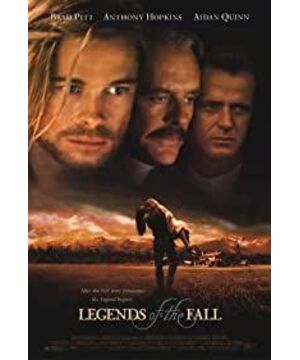Legends of the Fall evaluation action
2021-11-14 08:01
The music and the theme of the film have always been integrated in the film. The tone of the whole film is poignant and tragic. The music production of "The Years of Burning Love" firmly grasps the tragic and majestic theme, embodies the melancholy and desolate style, and makes the film show a unique tension. Under the rendering of music, the film is like a poignant lyrical prose.
As the core character of the film, Tristan uses reality to implement and explain the charm of freedom. Under the special background of the time, everyone acted rebelliously to varying degrees. In the end, Alfred, who represented the national government, also reconciled with his father and reverted his position. Freedom, as the basic need of human nature, guides people to break through the barriers and obscurations of ideology, and achieve the baptism and sublimation of the soul and body. Tristan-style freedom is not bottomless and free, but freedom under the faith of "God" that the United States has always adhered to. This rebellious "hero" looks barbaric, but it is also in human nature. Under the influence of Tristan's temperament, even people who hold the opposite position will be conquered by his behavior. Secondly, the natural power of Indians and nature was given to Tristan, which gave the character a legendary color. As an ideology, neoliberalism advocates capitalist values, weakens government intervention and regulation, and guarantees the privatization of capitalism. In this film, the hypocrisy of the government is revealed through the war with the Indians, but it actually promotes the idea of weakening the government's functions and returning the economy and society to liberalization.
Extended Reading
-
One Stab: It was a good death.
-
Samuel Ludlow: [singing] As evening fell, a maiden stood, at the edge of a wood, in her hands laid the reins, of a stallion, and near I've seen, a girl as fair, heard a gentle voice anywhere, whisper, alas, she belong, belong to another, another, forever, yes she belong to the twilight and mist.











